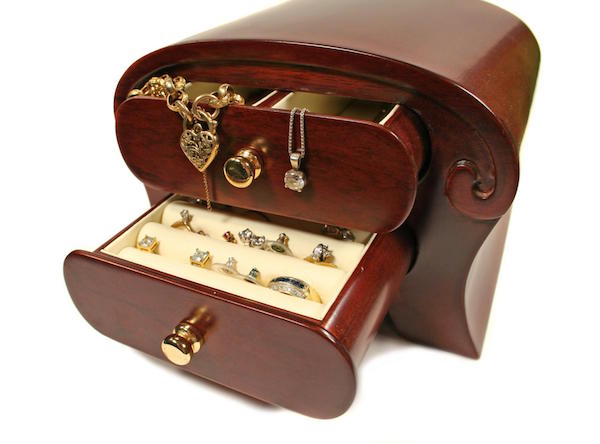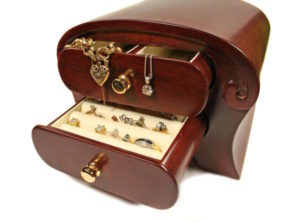When administering a deceased estate, love and law can intersect in the context of grief, causing problems for those left behind. Small things can set-off major family feuds.
For most families, a desire for personal effects is less about what they are worth and more about their sentimental value. Medals, jewellery and personal items are often the subject of strong feelings.
People in grief can behave irrationally, and their high emotions can create powerful symbols out of ordinary objects – a grandfather’s watch, a necklace, the rings mother wore – and in their minds the items become confused with how much the deceased loved them, rather than the market value of the items in question.
Family members will often feel a sense of entitlement and expectation regarding the “treasured possessions” of a dead relative. The objects can be seen as a talisman of the strength of the relationship. Sometimes the object is imbued with fond reminiscence of a moment shared, and becomes the symbol of the bond.
Often there are competing claims for a particular item that is unique and cannot be divided – such as mum’s engagement ring. So how do you decide how to share your personal effects among your family so that no-one feels left-out? Here are some options for you to consider:
- You could leave the decision to the personal discretion of the Executor of your Will. The success of this option will depend upon how well everyone gets on with each other in a time of great stress.
- You could direct that everything be sold and the cash proceeds be divided. This is a coldly logical option that makes it difficult for family heirlooms to remain in the family.
- You could create a “stocktake Will” where you identify each asset and specify a named beneficiary for each. This requires great care, as well as ongoing maintenance. This is because personal items tend to become lost, stolen, broken, sold or given-away as we age, and if your Will is “hard-wired” with references to assets which no longer exist at the date of your death, then legal problems (known as partial intestacies and ademptions) may arise, causing stress & costs to your family to sort-out after your death.
- You could leave your estate in percentages or ‘shares’ to your beneficiaries, and if they cannot amicably sort-out between them who is to get which assets, then reserve to your Executor the option of selling at market value the disputed asset(s) to whomever wants to buy them from the estate. This can work well, provided the beneficiaries have the cash to buy the disputed items from the estate.
- You could create a Letter of Wishes. This is an expression of your preferences without imposing any obligations. It is a personal list of the items that you would like people to have, which you provide to the executor as a letter of informal guidance that is not part of the estate plan, so it is not testamentary in nature. Then people are more likely to accept the situation, because “this is what mum wanted”. Unlike having to formally remake the stocktake Will whenever changes occur, a letter is easier, less costly and time-consuming.
Talking to the kids ahead of time is a good way to avoid disputes over family heirlooms. Perhaps only one child is interested in grandpa’s war medals, but everyone wants the antique dining table. Parents can explain who will get what and why, and they can try to make sure everyone gets something they want. Maybe you can’t please everybody. But it is worth making the effort.
SPECIAL REPORT “7 Things You Must Know
Before You Make Your Will”
In this report you will Learn:
Why home-made Wills can be a LOT more expensive than you might think.
The secret weapons used by the rich & powerful to protect their assets, and transfer their wealth two or three generations ahead.
How Estate and Trustee Companies make BIG money from “free” Wills.
The Most Common Estate Planning Mistakes, how they can cost your family a fortune, and How to Avoid Them.
The Elements of a Sound Estate Plan – why a Will alone is not enough.
How to Make Sure Your Assets Stay in Your Family and are not lost to creditors, lawsuits or ex-spouses.
How to guard against challenges to your Estate after you’re gone.

